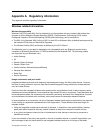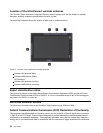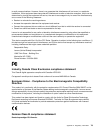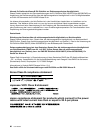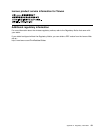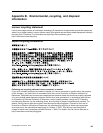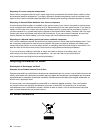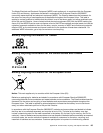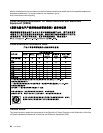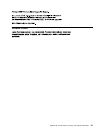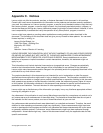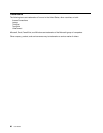
The Waste Electrical and Electronic Equipment (WEEE) mark applies only to countries within the European
Union (EU) and Norway. Appliances are labeled in accordance with European Directive 2002/96/EC
concerning waste electrical and electronic equipment (WEEE). The Directive determines the framework for
the return and recycling of used appliances as applicable throughout the European Union. This label is
applied to various products to indicate that the product is not to be thrown away, but rather reclaimed upon
end of life per this Directive. Users of electrical and electronic equipment (EEE) with the WEEE marking per
Annex IV of the WEEE Directive must not dispose of end of life EEE as unsorted municipal waste, but use the
collection framework available to them for the return, recycle, recovery of WEEE and minimize any potential
effects of EEE on the environment and human health due to the presence of hazardous substances. For
additional WEEE information, go to http://www.lenovo.com/recycling.
Battery recycling information for Taiwan
Battery recycling information for the United States and Canada
Battery recycling information for the European Union
Notice: This mark applies only to countries within the European Union (EU).
Batteries or packaging for batteries are labeled in accordance with European Directive 2006/66/EC
concerning batteries and accumulators and waste batteries and accumulators. The Directive determines the
framework for the return and recycling of used batteries and accumulators as applicable throughout the
European Union. This label is applied to various batteries to indicate that the battery is not to be thrown
away, but rather reclaimed upon end of life per this Directive.
In accordance with the European Directive 2006/66/EC, batteries and accumulators are labeled to indicate
that they are to be collected separately and recycled at end of life. The label on the battery may also
include a chemical symbol for the metal concerned in the battery (Pb for lead, Hg for mercury, and Cd for
cadmium). Users of batteries and accumulators must not dispose of batteries and accumulators as unsorted
municipal waste, but use the collection framework available to customers for the return, recycling, and
treatment of batteries and accumulators. Customer participation is important to minimize any potential
Appendix B. Environmental, recycling, and disposal information 85



